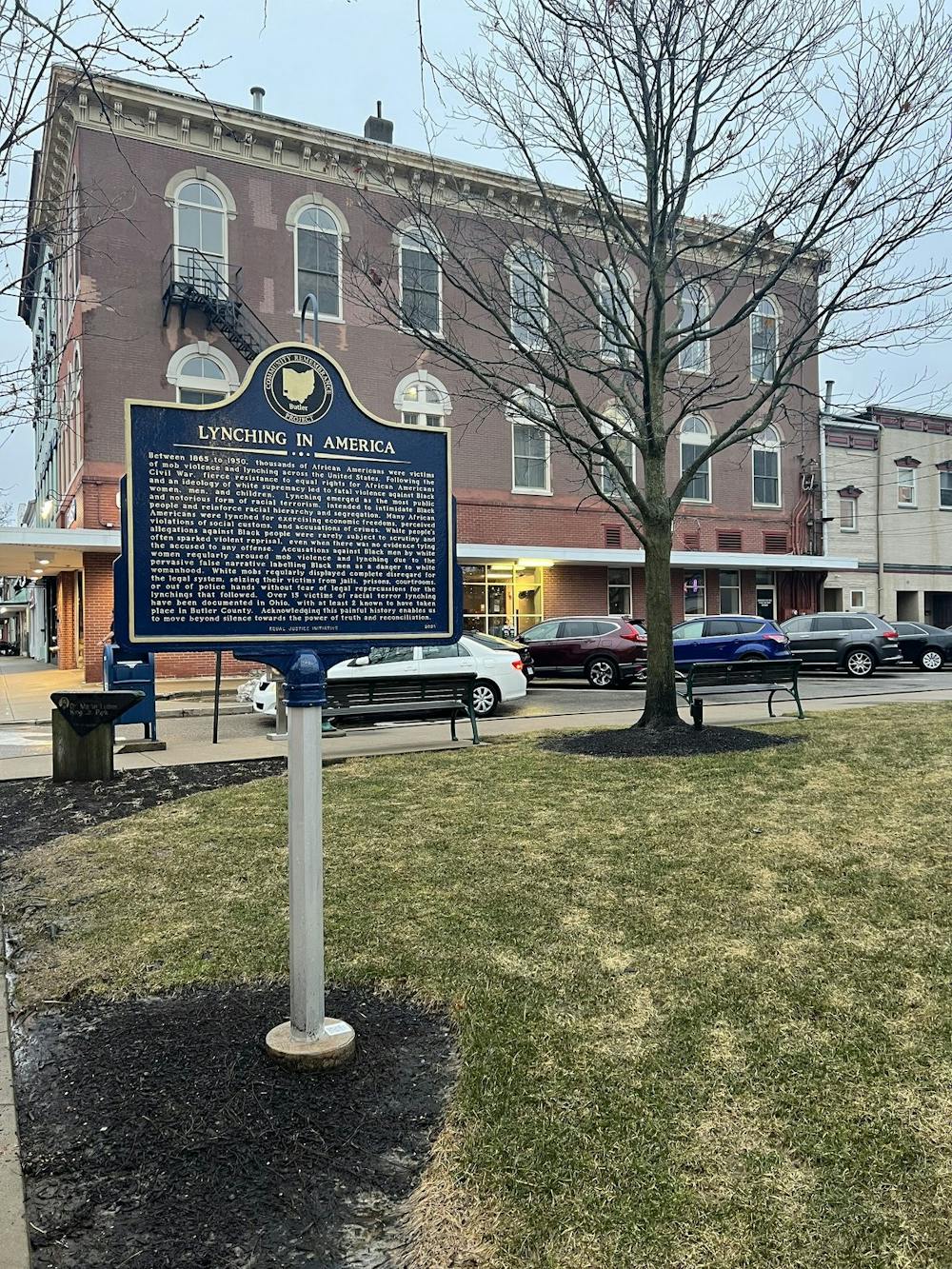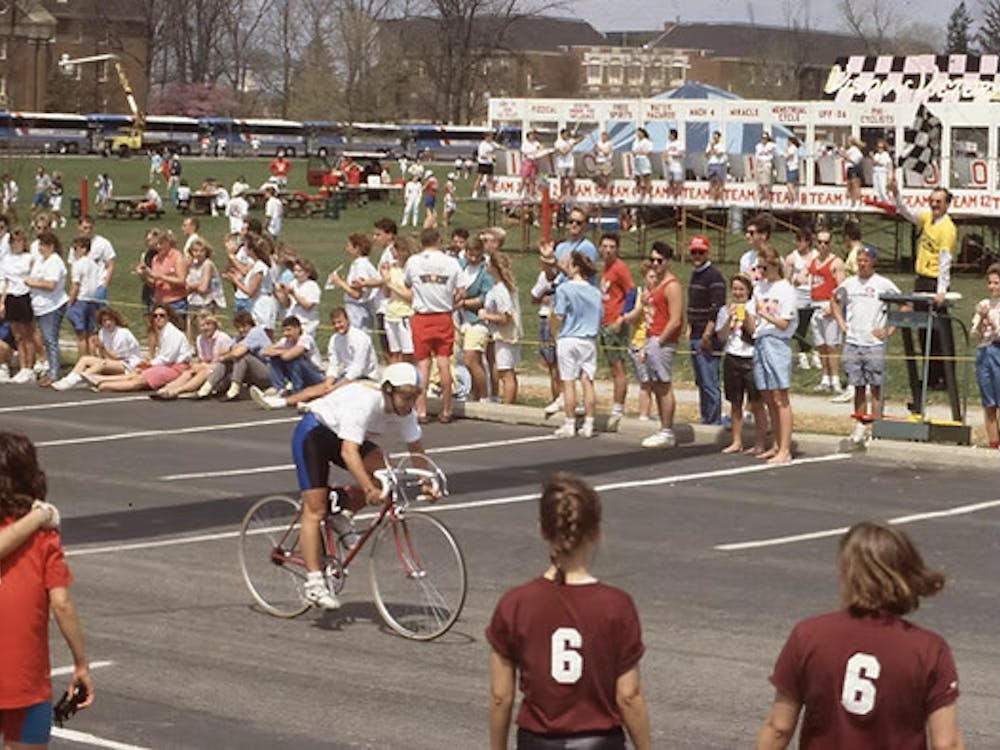The Ohio State House’s fight over the death penalty legislature recently reached Oxford in a Noose to Needle rally held by Ohioans to Stop Executions (OTSE). It was set to take place with a panel over Zoom and a public gathering in Uptown Park on Thursday, Feb. 17.
The event’s in-person gathering at Uptown Park was canceled due to weather conditions, but that didn’t stop the panelists from discussing the death penalty, its history and its implications in their Zoom program.
The event was set to take place in Oxford at Uptown Park’s memorial site for the lynching and deaths of two Black men: Simon Garnett and Henry Corbin.
Garnett and Corbin were brutally murdered by white mobs while being held in jail. Though neither of them were convicted, the mobs accused Garnett and Corbin for crimes against white victims. These attacks resulted in both of their deaths.
Feronda Brasfield, director of leadership development at the 8th Amendment Project, discussed the roots of the death penalty in an effort to curb the number of lynchings like these and how the justice system went from noose to needle.
“In many areas, municipalities responded to the increased number of lynchings by promising to use the death penalty,” Bratsfield said. “In Virginia, for instance, accused men were tried, convicted and executed all in a matter of hours.”
Jennifer Pryor, OTSE’s director of organizing and community outreach emphasized that events like these continue and spread conversation about the death penalty.
“Having these events brings awareness to places that aren't thinking about death penalties, and to do them in conservative spaces is important because it changes the conversation,” Pryor said. “It brings people into the conversation that haven't been included in the past.”
OTSE is an Ohio-based organization founded in 1988 with the goal of ending the use of the death penalty in Ohio.
Twenty-seven states in the U.S. currently authorize the death penalty – Ohio is one of them.
In February and March of 2021, two bills were introduced in the Ohio House of Representatives and Senate to address the use of the death penalty in Ohio.
House Bill 183 and Senate Bill 103 would repeal the death penalty in Ohio. They are both currently under review by committees and have had bipartisan support.
Enjoy what you're reading?
Signup for our newsletter
Ohio Senator Cecil Thomas, a sponsor of Senate Bill 103, was a panel member at the Noose to Needle event. He spoke on his motivation for sponsoring the bill.
“It's the mere fact that it's unconscionable, in the 21st century, to still put people to death,” Thomas said. “Especially when there are mistakes and people are put to death for something that they did not do.”
Senate Bill 103 is at a standstill in the Ohio Legislature. The Judiciary Committee has had two of the three required hearings for the bill. Thomas said this is because of the level of controversy over the topic.
“Whenever there's something that's a little controversial they drag it out and then they allow it to die every two years,” Thomas said. “It has to be reintroduced, it sunsets every two years.”
The two years for House Bill 183 and Senate Bill 103 are up in February and March of 2023.
OTSE’s Noose to Needle event focused on educating on the racial connections to the history of the death penalty.
Brasfield discussed the connection between the history of racism in the U.S. and its use of the death penalty.
“The death penalty is racist and every fact, figure and statistic points to that reality,” Brasfield said. “The death penalty is a direct descendant of slavery, Jim Crow and the racial terror lynchings that have been perpetrated on African Americans since their arrival in this United States.”
Currently, more than half of the people on Ohio’s death row are Black, while Black people make up only around 13% of the Ohio population. People of color have historically been overrepresented in the sentencing of the death penalty.
“The modern death penalty replaced the practice as a way to disproportionately punish Black men with white victims,” Brasfield said.
The event’s other featured panelists were Demetrius Minor of Conservatives Concerned Over the Death Penalty and Rev. Dr. Crystal Walker of Greater Dayton Christian Connections.
The topic is close to home for Walker, whose son was murdered in 2013. A long opposer of the death penalty, she spoke on her waverings during when she was in what she called a “dark place.”
“I believed, for two weeks, that this young man should lose his life, too,” Walker said.
For Walker, this belief was charged with anger. She continues her fight for the abolishment of the death penalty and is passionate about her work. Walker’s change in heart came with realizations on what the death penalty does.
“The death penalty really doesn't solve anything,” Walker said. “It doesn't solve anything for the victim's family. It doesn't bring your loved one back to you and it only brings more guilt, shame, hurt and dishonor. And that's why I'm involved in this work.”
Near the end of the program, Jennifer Pryor called for action among those in attendance. She encouraged phone calls to the Democratic sponsor of Senate Bill 103 to voice support for their efforts on the bill.
At the end of the program, Pryor requested a moment of silence for the list of Black men who were illegally lynched and executed by white mobs in the state of Ohio.
Those sitting at home with Zoom on their screens were asked to remain silent after the names of these men came across their screen and were read off by Pryor.
“Roscoe Parker, Charles Davis, Simon Garnett, Henry Corbin, Charles Mitchell, Richard Dixon, Noah Anderson, Henry Howard, Frank Fisher, Unknown, Stephen Wade, William Taylor, Unknown, Luke Murray, Seymour Newlin.”




